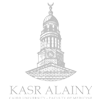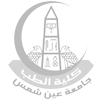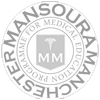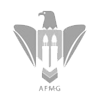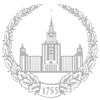The subjects of last three medical years studying [ clinical years ] . We’re providing the best sources & materials for each subjects you can study clearly from it.
The clinical years transition the medical student of the classroom into the student doctor in the hospital setting. The third year begins with the Student Clinician Ceremony, which celebrates that transition. Student clinicians work in different departments throughout the University hospitals and clinics, with a variety of health care providers including physicians, residents, nurses and other students.
The focus is hands-on learning through direct patient care. Students assist with procedures and patient care under the guidance of residents and attendings, making them a vital part of the team. The clinical skills that UMMC medical students possess are widely recognized by residency programs throughout the country.
|
||||||||||||||||||
How is teaching/learning different during clinical years compared to preclinical ?
In pre-clinicals, you spend a lot of time attending lectures, dissections (to supplement anatomy teaching) and small group teaching (to consolidate what you have learnt in your lectures). In essence, there is a lot of spoon feeding as a preclinical medic!
In clinical years, you only have lectures 1 day a week & the rest of your week is spent on the wards. Bedside teaching becomes a regular feature where a doctor/physician's associate takes you around to practice your physical examination techniques on actual patients.
In terms of learning, in your pre-clinical years, your lecture notes are usually sufficient enough to get by your exams. No other textbook required.However, in clinical years your Oxford Clinical Handbook will be your best friend. Lectures alone are not enough to supplement your clinical knowledge. There is a lot of self-guided responsibility of learning in clinical years which can feel like a bit of a jump.
What would you advise to prepare for the change? What practical advice would you give to medical students starting clinical rotations?
In terms of preparing for the change, I would suggest that practicing taking a professional history and attending the clinical examinations sessions during your 1stand 2ndyear is important!Examinations and history taking are your main metaphorical 'sword & shield' for the clinical years. Once you have these skills all you need is building the bricks of clinical knowledge from each patient you meet.
In terms of practical advice, I will advise spending induction week for each block building a sign-off timetable. Apart from all the things you need to learn during clinical years, getting sign-offs for your portfolios are key. Space your sign-offs fairly so you still have time to visit wards, speak to and examine patients. This gives you enough time each week to do some much needed independent revision/study. Time management is a really key skill during clinical years.
How to make the most out of your clinical years?
In terms of making the most out of your clinical years, in the first few weeks of your first clinical block you are most probably going to be really scared of talking to patients and examining them too. Not to worry, every student, foundation doctor, core/specialist trainee, and consultant has felt the same way and remember their first clinical year fondly. Some even have embarrassing stories of mess-ups they had during the period (oh let's not discuss my first time taking a history and accidentally causing a mess with a patient's glass of water during it!)
Patients know fully well you are students and you need to learn. So they generally don't mind you forgetting questions that you need to ask, or not understanding certain medical procedures they went through, or accidentally saying medical jargon, or pressing too softly whilst palpating during an examination etc. I would advise during clinical years, clerk as many patients as you can and ask them to clarify treatments they have been through. Patients actually make the best educators and they want you to be an amazing doctor when you graduate.
So in summary, if you are not spending at least 30 minutes taking a history from a patient on a ward you really haven't learnt much about them!
Also make spare time for yourself to carry out your hobbies! Your mental health is important too.
Apply for Bachelor's Degree
In all medical fields; Medicine, Dentistry & Pharmacy
It takes about 1-2 months to be accepted
Apply for Matser's Degree
Available in Russian or English languages
Takes from 2-3 years according to your speciality
Transfer to our university
Only internal transfer is available from other Russian universities
External transfer from outside Russia not available .
Apply for preparation year
It takes a year learning Russian language & prepare you in Biology & chemistry by Russian language
Apply for faculty of General Medicine
You can choose the language of study, Russian, English or French
Lasts for 6 years
Apply for Faculty of dentistry
You can choose the language of study, Russian, English or French
Lasts for 5 years
Apply for faculty of pharmacy
You can choose the language of study, Russian, English or French
Lasts for 5 years
